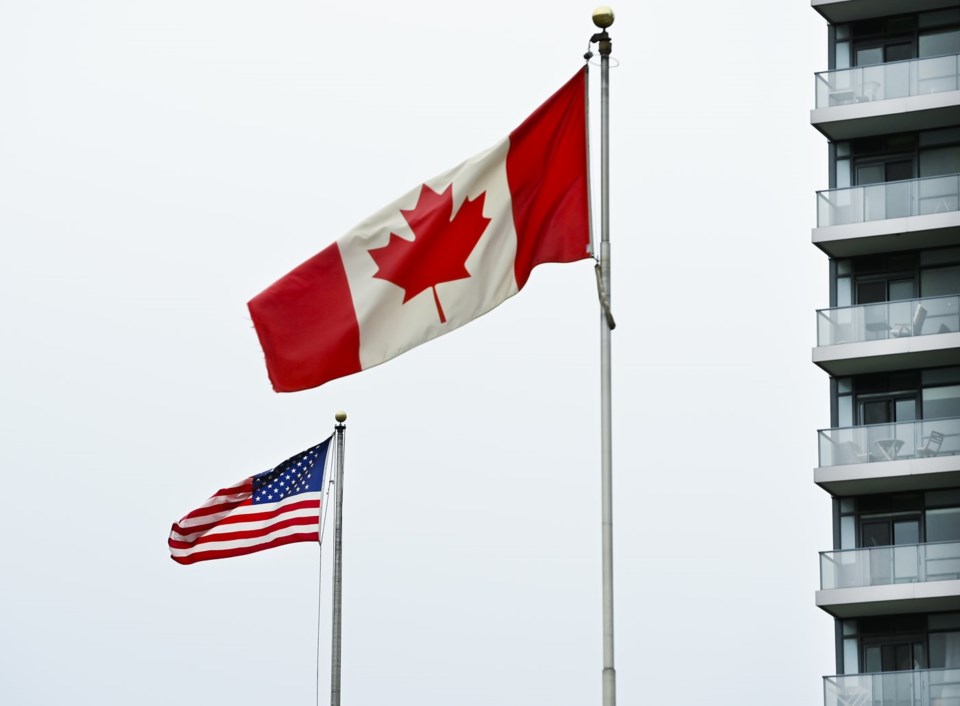OTTAWA — American streaming companies are being unfairly targeted by a new Canadian fee that "disproportionately" serves interests north of the border, the United States is charging.
This week, the Canadian Radio-television and Telecommunications Commission directed foreign streaming companies such as Netflix and Spotify to put five per cent of their Canadian revenues toward local news and Canadian content.
Members of the U.S. Congress and trade organizations have raised concerns over the mandate, saying it discriminates against American companies.
Some organizations are floating the idea of retaliation.
The U.S. Embassy in Ottawa said it is watching developments around the Online Streaming Act closely. The new fee was ushered in as part of a regulatory process to implement the Liberal government legislation.
"The United States shares Canada's interests in robust audiovisual and news industries, but (the Online Streaming Act) appears to target U.S. companies to disproportionately serve the interests of large Canadian companies," a spokesperson said in a statement.
"We encourage Canada to consider U.S. stakeholder input as it implements this bill.”
The legislation passed in Parliament a little over a year ago seeks to level the playing field between tech giants and traditional broadcasters, which already contribute large amounts towards Canadian content.
The new fee is expected to inject about $200 million into Canada's broadcasting system every year.
But the federal regulator is underestimating the amount of investment U.S. production companies for TV and film already spend in Canada, said Tiffany Smith, vice-president for America's National Foreign Trade Council.
She said that includes the transfer of technology and education to "help build up" Canadian cultural industries.
Now, U.S. companies are required to even further "fund the work of people in another country, which is one of our closets allies and trade partners," said Smith.
"This really is a new world we're looking at in terms of looking to foreign companies to underwrite programs that the Canadian government has traditionally funded."
The fee risks restricting cross-border trade with the U.S., said the American Chamber of Commerce in a statement, a point also raised by a bipartisan congressional group.
There are provisions within the Canada-U.S.-Mexico trade agreement that would enable the U.S. to retaliate and seek compensation if it was inclined to do so, Smith said.
"Now, what any government would do, I'm not really in a position to comment on that," she said.
Trade Minister Mary Ng has insisted throughout the legislative and regulatory process that the bill is trade-compliant.
A spokesperson for the U.S. Trade Representative said that office is reviewing the regulations and will keep the conversation with Canadians going.
Parliamentarians on a House of Commons trade committee were expected to hear concerns over Canada's latest move on Thursday.
The CEO of the Digital Media Association, which represents Amazon Music, Apple Music, Pandora, Spotify and YouTube, was set to testify.
Prepared remarks for Graham Davies, obtained by The Canadian Press, suggested he would argue that the fee undermines investments U.S. streamers are already making in the Canadian music industry "and may also have unintended consequences for consumers, particularly younger Canadians who are the predominant users of music streaming services in Canada."
"In general, rising costs can lead to rising prices, and we have identified nothing in the new regulations to soften the impact of this economic rule," the speaking notes read.
This report by The Canadian Press was first published June 6, 2024.
Mickey Djuric, The Canadian Press



